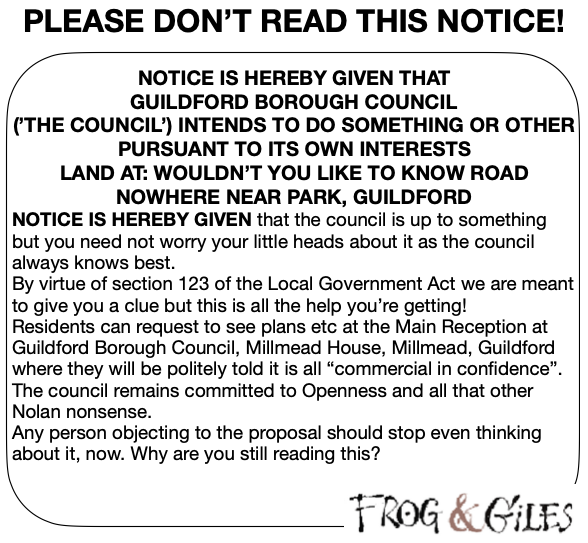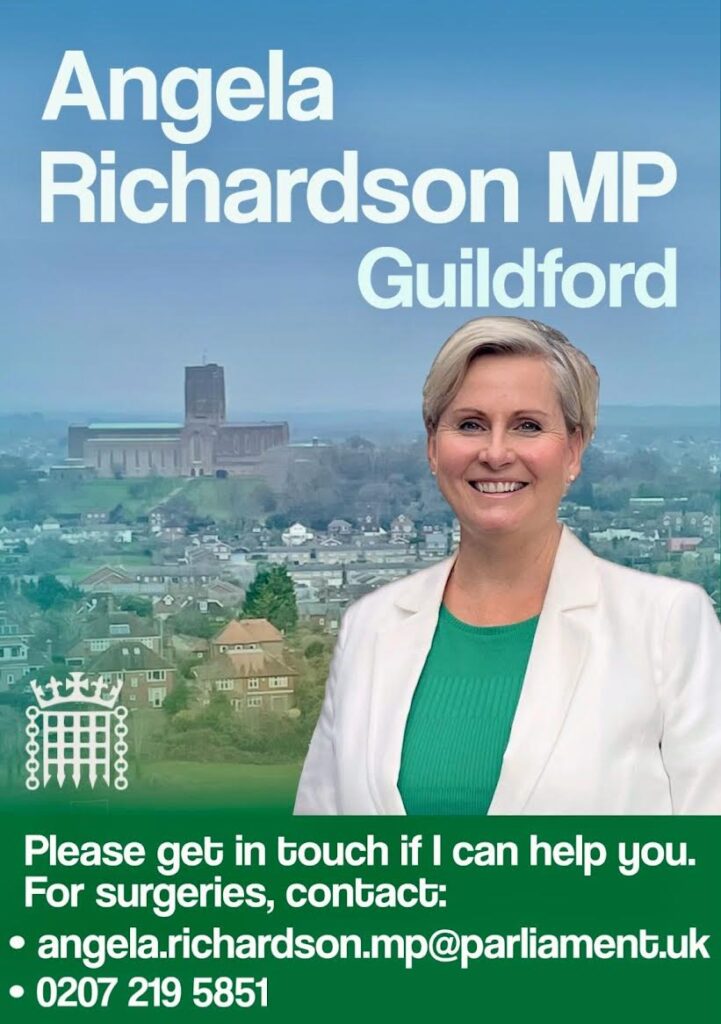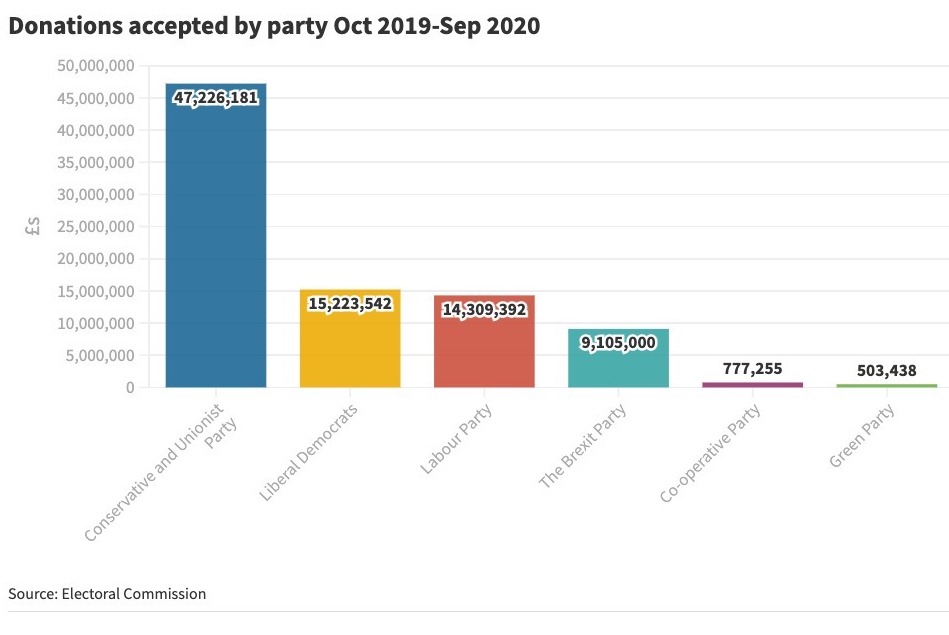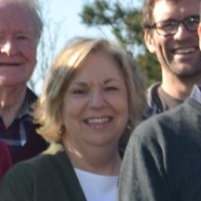 Abraham Lincoln
If given the truth, the people can be depended upon to meet any national crisis...
Abraham Lincoln
If given the truth, the people can be depended upon to meet any national crisis...
 Guildford news...
for Guildford people, brought to you by Guildford reporters - Guildford's own news service
Guildford news...
for Guildford people, brought to you by Guildford reporters - Guildford's own news service
Lockdown Rules on Campaigning ‘Danger to Democracy’
Published on: 19 Feb, 2021
Updated on: 23 Feb, 2021
local democracy reporter
Critics of holding local elections on May 6 question whether they can be truly democratic during lockdown.
They say all but the two main political parties are disadvantaged by the Government ban on leafleting and door-knocking by party activists.
Delivery of leaflets by post or other commercial delivery services is allowed, since these are “already operating, without causing additional circulation of campaigners”.
But some candidates say this is a barrier to smaller parties and independents because they may not be able to afford to campaign this way.
Don Whyte, leader of Runnymede Liberal Democrats, said: “What this means in effect is that only wealthy candidates or candidates from wealthy parties such as the Conservative Party, with their generous donors and the Labour Party through union funding, can afford to campaign by leafleting.
“If candidates are not able to effectively communicate with residents and are being excluded from elected office because of what is in their bank accounts, should the elections be delayed?”
Residents for Guildford and Villages (R4GV), the second-largest group on Guildford Borough Council, said the ban would “disproportionately disadvantage those without the resources and funding of the national parties” and “compromise the ability of voters to make an informed choice”.
The borough council’s next election is not until 2023, but R4GV intend to contest seats on the county council this year.
Group chair Fiona Davidson said: “Even if there is some loosening of the restrictions just before the beginning of the regulated election period, the damage will have been done.
“There will not have been a level playing-field.”
She has written to the Cabinet Office urging them to postpone the election until autumn.
A Cabinet Office spokesperson told the Local Democracy Reporting Service: “The current national lockdown restrictions are very clear: people should stay at home wherever possible.
“To reduce transmission of Covid infections, door-to-door campaigning by volunteers at this point is therefore not considered essential or necessary activity.
“In due course, we will be holding elections, where different rules will apply. Democracy will not be cancelled because of Covid.
“The Government has committed to engaging with political parties on the guidelines that will be in place for these elections.”
They are working with the Parliamentary Parties Panel on their polls delivery plan, although this has representatives only of parties with two or more sitting MPs, so excluding the many non-parliamentary parties in local government in Surrey.
Nick Prescot, Conservative council leader of Runnymede borough, said: “People might think larger parties have a war chest but I don’t see that to be the case. It is a problem for all parties.”
He believes it would be anti-democratic to postpone. “People are still going to the supermarket and they should be able to exercise their democratic right to vote,” he said.
“There have been a lot of by-elections in Scotland so there is a tested methodology.”
Mark Brett-Warburton, a Conservative county councillor for Guildford South East, agreed. “There is a good argument from a democratic point of view that you shouldn’t delay elections.
“The States had a fantastic response in the middle of a pandemic and we are in theory on the way out, with a vaccination rollout that has proved successful. They managed to get a nationwide election to work and I don’t see why we can’t do something similar here.”
A week before the announcement to stick to schedule, a Local Government Information Unit (LGIU) survey showed 69% of council officials believed an autumn timetable was more achievable.
LGIU chief executive Jonathan Carr-West said: “The logistical challenges are formidable and there’s a real risk that we effectively disenfranchise millions of people who do not feel safe going to the polls.”
Chloe Smith, Cabinet Office minister for the constitution and devolution, said £31 million would be provided to local authorities to help make polling stations and count centres Covid-19 secure.
She said: “Everyone who feels comfortable going to a supermarket or a post office should also feel confident attending a polling station in May.
“We encourage anybody who is shielding, or who would prefer not to attend a polling station, to apply for a postal or proxy vote ahead of the polls.”
But R4GV believes registering for a postal vote involving an online application form is unfair to people living in more socially deprived areas.
“Does the government want to be seen to be clearly discriminating against voters who don’t have access to the internet or who lack knowledge or confidence?” their group chair said.
“Many voters will not register for postal voting, no matter how effective a postal voting campaign is run locally. The level of postal voting varies significantly across Guildford borough, but the lowest rates are in the more socially deprived areas.”
Kath Richards, electoral services manager for Runnymede Borough Council, said: “I can honestly say there is nothing to prove that within Runnymede. It may be in other areas, but certainly not in ours.”
James Whiteman, electoral registrations officer at Guildford Borough Council, added: “We have not investigated whether there is any link between the uptake in postal vote applications and levels of deprivation in any particular area.”

See Dragon story: GBC’s Explanation of Major Land Sale Notice Error ‘Borders on Arrogant’ Says Councillor






Recent Articles
- Guide to Telephone Befriending Services for Older People
- Stage Dragon: Sleuth at the Yvonne Arnaud Theatre
- Guildford Lido All Set for the 2024 Season
- Appointment of Permanent Joint Strategic Director of Finance Confirmed
- Police and Crime Commissioner Candidate Interview – Alex Coley
- New Approach to Mental Health Concerns Reported to the Police
- Letter: Bernard Quoroll ‘s Insight Should Be Heard
- Police and Crime Commissioner Candidate Interview – Paul Kennedy
- Staff Union Warns Surrey University of No Confidence Votes
- Invitation to Join Mass Bike Ride on Saturday, April 27


Search in Site
Media Gallery
Dragon Interview: Local Artist Leaves Her Mark At One of England’s Most Historic Buildings
January 21, 2023 / No Comment / Read MoreDragon Interview: Lib Dem Planning Chair: ‘Current Policy Doesn’t Work for Local People’
January 19, 2023 / No Comment / Read MoreA3 Tunnel in Guildford ‘Necessary’ for New Homes, Says Guildford’s MP
January 10, 2023 / No Comment / Read More‘Madness’ for London Road Scheme to Go Ahead Against ‘Huge Opposition’, Says SCC Leader
January 6, 2023 / No Comment / Read MoreCouncillor’s Son Starts Campaign for More Consultation on North Street Plan
December 30, 2022 / No Comment / Read MoreCounty Council Climbs Down Over London Road Works – Further ‘Engagement’ Period Announced
December 14, 2022 / No Comment / Read MoreDragon Interview: GBC Reaction to the Government’s Expected Decision to Relax Housing Targets
December 7, 2022 / No Comment / Read MoreHow Can Our Town Centre Businesses Recover? Watch the Shop Front Debate
May 18, 2020 / No Comment / Read More










Recent Comments